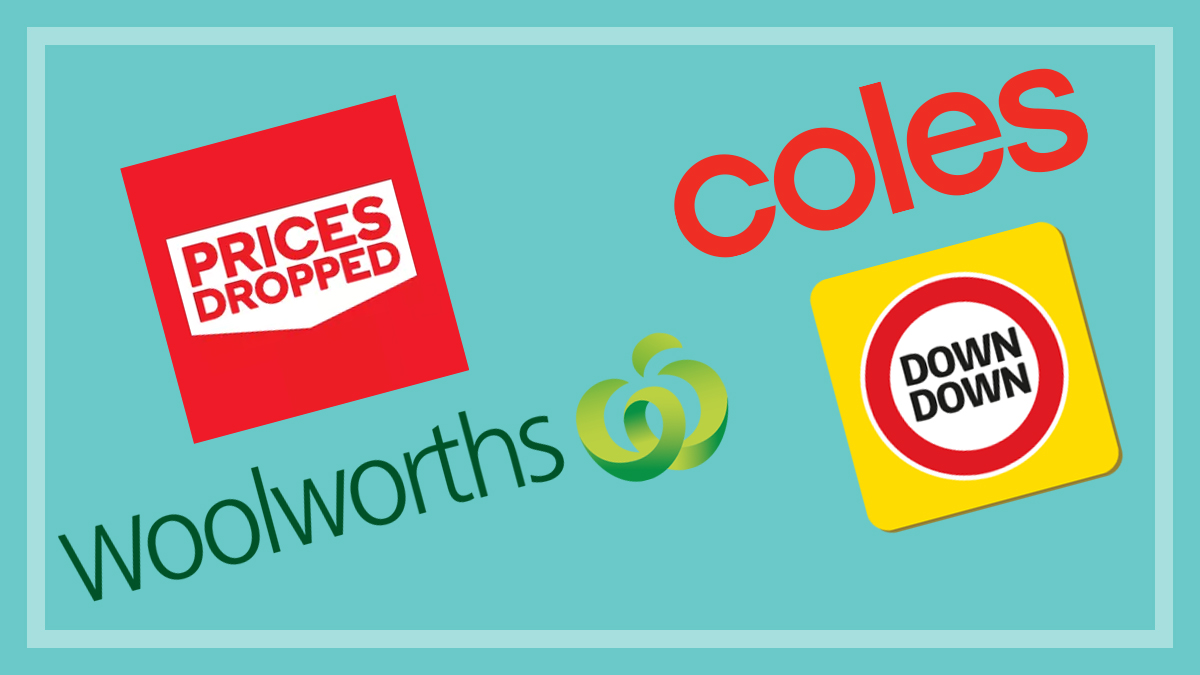Need to know
- The ACCC is taking both supermarkets to court for misleading pricing tactics on hundreds of everyday products
- Both are accused of raising prices up to 15% above regular prices and then dropping them before applying the 'prices dropped' and 'down, down' labels
- CHOICE is calling for greater transparency of historical supermarket pricing data to prevent supermarkets from engaging in such underhanded tactics
Many Australians are well aware that the two big supermarket chains have been playing tricks with pricing in recent years.
When we gave Woolworths and Coles a Shonky award in 2023, part of our research involved a nationally representative survey on how shoppers viewed the supermarkets’ approach to pricing.
Grocery prices had climbed steadily higher through the worst of the cost-of-living crisis, and 60% of the shoppers we heard from said the they didn’t believe that it was because the supermarkets faced higher costs.
In December last year, shortly after we delivered our Shonky, Coles agreed to refund thousands of customers after we caught the supermarket raising prices that it claimed were ‘locked’.
Price manipulation designed to mislead
Now the Australian Competition and Consumer Commission (ACCC) is taking the duopoly to court in separate cases for similar pricing tactics involving the supermarkets’ respective ‘prices dropped’ (Woolworths) and ‘down, down’ (Coles) claims.
“We allege that Woolworths and Coles breached the Australian Consumer Law by making misleading claims about discounts, when the discounts were, in fact, illusory,” says ACCC Chair Gina Cass-Gottlieb.
Promotional labels at the major supermarkets often confuse shoppers, and the frequent changes in prices make it difficult to tell whether there is a genuine discount or not
CHOICE director of campaigns Rosie Thomas
Both supermarkets are accused of raising prices up to 15% above regular prices and then dropping them before applying the ‘prices dropped’ and ‘down, down’ labels – but still leaving prices on the promoted items above or the same as the regular long-term prices. In other words, these special offers were either the same or worse than the supermarkets’ regular offers.
“We know from our extensive work in this area that promotional labels at the major supermarkets often confuse shoppers, and the frequent changes in prices make it difficult to tell whether there is a genuine discount or not,” says CHOICE director of campaigns, Rosie Thomas.
CHOICE is
calling for greater transparency of historical supermarket pricing data.
“Easier access to data on supermarket price changes over time would have made it
much harder for the supermarkets to get away with this kind of behaviour for so
long,” Thomas says.
Tens of millions of misleadingly labelled products sold
The ACCC investigation found that the misleading conduct occurred both online and instore, with 266 products sold at Woolworths and 245 sold at Coles at different times over 20 and 15 months, respectively.
We allege these misleading claims about illusory discounts diminished the ability of consumers to make informed choices about what products to buy, and where
ACCC chair Gina Cass-Gottlieb
The regulator, which began its investigation based on contacts from consumers and social media monitoring, estimates that Woolworths and Coles sold tens of millions of misleadingly labelled products and “derived significant revenue from those sales”.
“We allege these misleading claims about illusory discounts diminished the ability of consumers to make informed choices about what products to buy, and where,” Cass-Gottlieb says.
The ACCC is seeking penalties in the case as well as community service orders requiring both supermarkets to fund a registered charity to deliver meals to Australians in need, in addition to any pre-existing programs.
